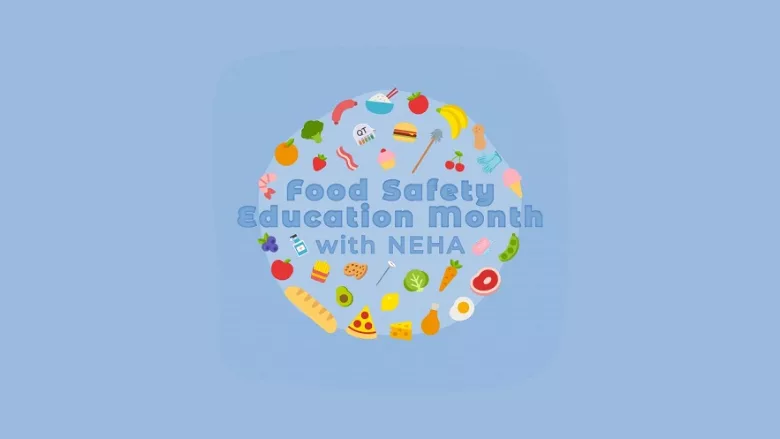NEHA Discusses Progress on Food Safety Legislation and Policy

Credit: National Environmental Health Association (NEHA)
As part of National Food Safety Education Month, the U.S. National Environmental Health Association (NEHA) hosted a webinar on September 13, titled, "Food Safety Legislation and Policy Trends." Doug Farquhar, J.D., Director of Government Affairs for NEHA, gave an overview of how food safety legislation is typically enacted, as well as major food safety legislative actions taken by states over the past couple of years.
"Everybody has a role to play in food safety, which makes it more challenging and more rewarding to address food safety issues," Farquhar said. He explained how Congress funds the Food and Drug Administration (FDA) and the Department of Agriculture (USDA), and FDA in turn funds the majority of U.S. food safety activities at the federal level, while USDA funds food safety around meat and poultry.
"That doesn't mean that Congress doesn't have a role to play in policy regarding food safety," said Farquhar. "Congress also acts as a watchdog to ensure that the agencies are carrying out the missions they've been tasked to do." Within Congress, Rosa DeLauro (CT-03) and Rob Wittman (R-VA) are both heavily involved in food safety, Farquhar noted.
The most innovative and ambitious food safety activities and policies happen at the state and local levels, Farquhar explained. During the 2021–2022 legislative sessions, every state legislature met and introduced a bill regarding food safety. There were 348 different food safety bills introduced, 69 of which were passed into law by 38 states. Of those states, California, New York, and Minnesota enacted the most food safety legislation. The bills addressed retail foods, meat, food freedom, general food safety, nutrition issues, restaurants and foodservice, food deserts, and mobile food trucks.
Retail Food Legislation
For retail food (e.g., farmer's markets and semi-permanent events), 88 bills were introduced, and 10 were enacted in Illinois, Georgia, Mississippi, Ohio, Pennsylvania, Virginia, and Wisconsin. Forty bills were introduced regarding the retail food code, with three enacted in California, New York and North Carolina.
Food Freedom Bills
Food freedom bills, mostly concerning home-based and homemade food businesses (such as cottage kitchens), saw 45 bills introduced with nine enacted into law. At present, 32 states do not require an inspection to open a homemade food business, with 25 of those states not requiring licensing, permitting, or registration of home-based food enterprises. However, six states and Washington D.C. require extensive inspections and permitting before anyone can open any type of homemade food business.
Data shows that food freedom operations have led to an increase in foodborne illness outbreaks in states that do not regulate homemade food operations, Farquhar said. Maine's Food Sovereignty Act, which has been added to the state's constitution, allows for direct producer-to-consumer transactions without any state oversight, making it difficult to ensure food safety from home-based businesses.
Food Deserts and Cannabis
Regarding food deserts, no states proposed legislation on the topic of food deserts and food access in 2010; however, 12 bills to improve food access were introduced in 2022 and four were enacted.
Also, legislation on Cannabis in foods saw nine bills enacted, with one bill related to food, during the 2021–2022 legislative sessions. As an example, California bill AB 2155 defines the term "Cannabis beverages" as a form of edible Cannabis products that is intended to be consumed in its final state as a beverage.
Looking for quick answers on food safety topics?
Try Ask FSM, our new smart AI search tool.
Ask FSM →








